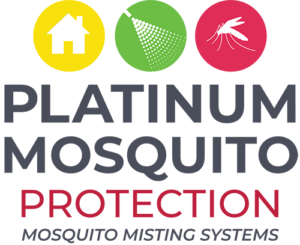What you should know about mosquito-borne viruses
When a female mosquito selects you for her meal, she’s doing so in order to produce eggs. It’s a simple enough reason for a complicated process that can sometimes result in serious consequences for her human buffet.
After landing on you, the mosquito’s labrum – or snout – touches your skin. It’s a well-oiled machine of mouthparts that grips flesh, pierces the surface, and allows her proboscis to probe under your skin for a blood vessel. Once found, she releases anti-coagulant via her saliva into the wound to prevent your blood from clotting.
It’s in her saliva that mosquito-borne viruses live. For South Florida residents, the top 3 viruses are Zika, Dengue, and Chikungunya.
How a mosquito becomes infected
When a mosquito feeds on an infected person or animal, the virus is transmitted to the mosquito via the host’s blood. Once inside the insect, the virus replicates and in about a week, the mosquito can infect future hosts through her saliva.
Aedes aegypti is the mosquito most likely to spread viruses in South Florida. The small black insect with white bands on its legs is known as a “sip feeder.” Rather than a prolonged feeding session, this culprit prefers to sip and fly, which increases the likelihood that a single mosquito will transmit the disease to multiple people.
It’s also quite adept at reproducing, living near humans and relying on any standing water in which to lay eggs – even a few drops of water cradled in a discarded candy wrapper.
Virus transmission between mosquito and human
If it seems any talk of Zika and other mosquito-borne viruses has all but disappeared from the headlines, it has. Winter in South Florida is not really mosquito season. Cool and dry weather limits their population.
Summer heat, humidity, and rain are just around the corner – and that means more mosquitos.
In addition, travel to and from areas where these viruses are most common – South America, the Caribbean, Africa, Southeast Asia, and Southern Europe – increases the risk that people may return from their vacation after being bitten by an infected mosquito. Once on American soil, if bitten by another mosquito, that insect can then become a vector for spreading the diseases to others.
Once bitten by an infected mosquito
Symptoms for the three major mosquito-borne viruses in South Florida usually begin 3- 7 days after being exposed to the infected mosquito’s saliva.
The most common symptoms are:
- Fever
- Rash
- Joint pain
- Red eyes
In short, the viruses appear to be similar to the flu. Most often, cases are mild and can last for several days to a week. Severe cases, which can require hospitalization, are rare. Additionally, the illnesses are rarely fatal.
Nevertheless, some populations are at greater risk than others. These include:
- Women who are pregnant or those planning to get pregnant, especially in the case of Zika
- Adults older than 65 years of age
- People with certain medical conditions, such as high blood pressure, diabetes, or heart disease.
Prevention is the best medicine
Since there is no vaccine for any of the viruses, the first line of defense is smart prevention. In addition to being vigilant for any standing water, it also requires people to wear long-sleeved shirts and long pants, use screening to keep mosquitos out of living areas, and to use insect repellents that are safe and effective for everyone, including pregnant and nursing women.
You may also want to consider an automatic misting system for your home, business, or animal structures. Platinum Mosquito Protection offers a system that uses a blend of natural pyrethrum, a derivative of chrysanthemum flowers, and it’s synthetic form, permethrin. We also offer “greener” options.
For a free onsite consultation, complete our convenient online form.
Back to Everything You Need To Know To Fight Mosquito-Borne Diseases

